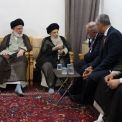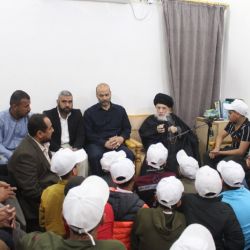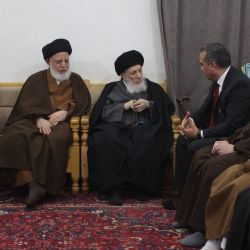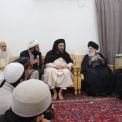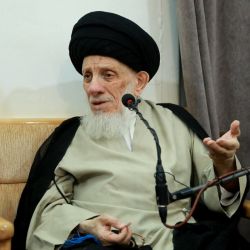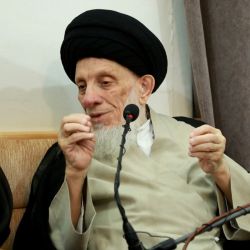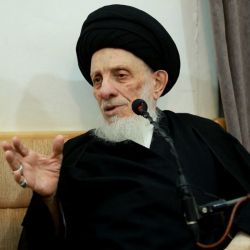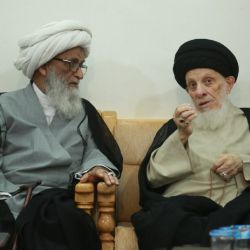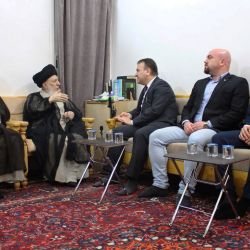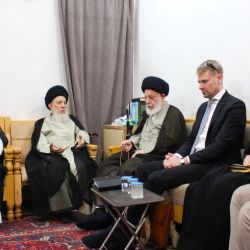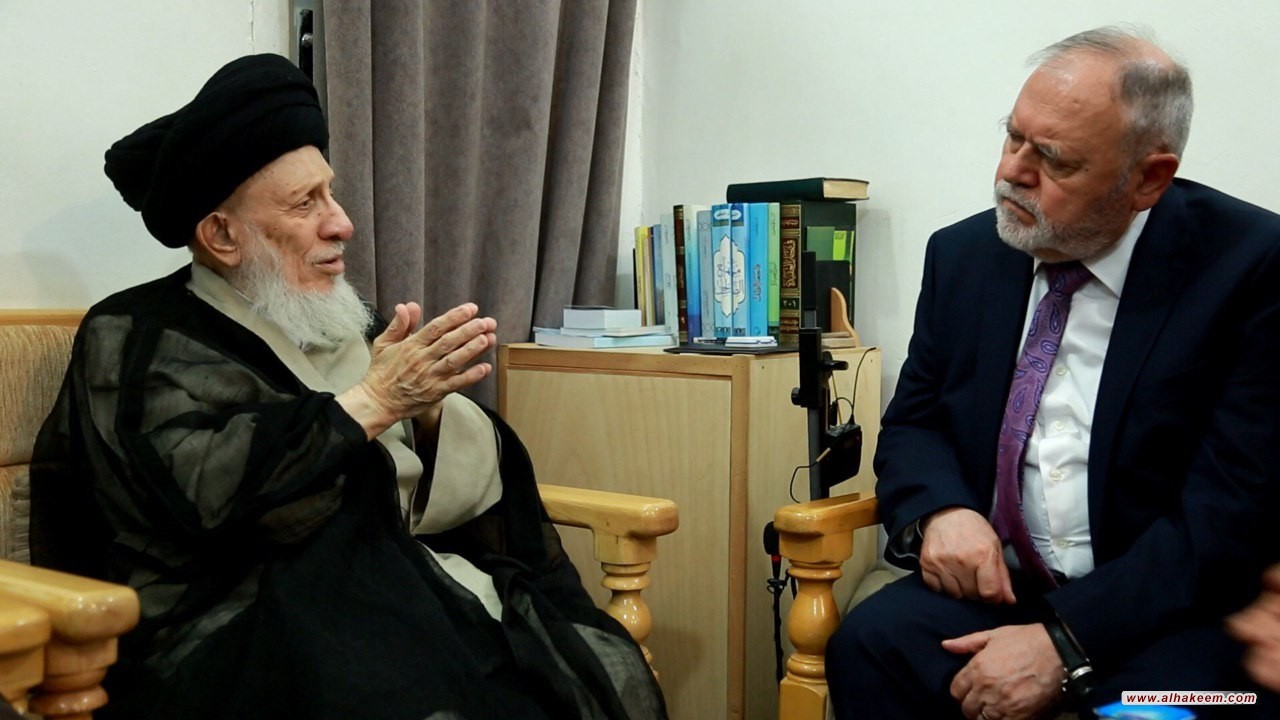
His Eminence, Grand Ayatollah Al-Sayyid Mohammed Saeed Al-Hakeem received the Ambassador of Romania in Baghdad, Mr. Iacob Prada, with his aides.
His Eminence advised on the importance of communication between communities, distant from political and personal motives, in order to embed great human values with societies, and to enable cooperation.
His Eminence also spoke of the role of Marji'iyyah and its complete independence, and its relationship with different levels of society.
The respected guest, Mr. Prada, expressed his gratitude in being able to visit Najaf and meet his Eminence, and he praised the fatherly role of Marji'iyyah for the Iraqi people and beyond.

